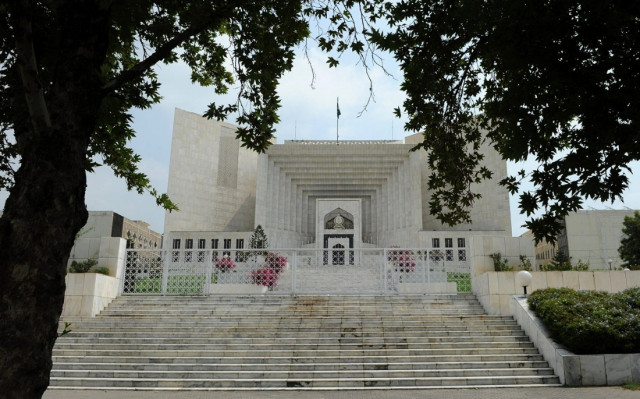Bail refusals on ‘flimsy grounds’ invites SC ire
SC notes that relief is not granted even where legal requirements are met; grants bail to alleged motorcycle thief

The bench granted leave to appeal to consider the legal and factual aspects of the case. PHOTO: AP
A three-judge bench, headed by Justice Dost Muhammad Khan, also urged lower courts to adhere to binding principles laid down by the apex court and not act mechanically in the granting or refusal of bail because these matters involve the liberty of citizens and should not be decided in a vacuum and without the proper judicial approach.
Today every prison is accommodating more than double their capacities of convicted and under-trial prisoners, while the state authorities must pay for additional daily expenses such as transport to and from the courts.
Meanwhile, dependent family members of the accused, especially school-going children, are left without proper care and supervision when their parents are sent to jail, which leaves their academic career at stake and opens them to being “tempted and persuaded to indulge in antisocial activities, and ultimately landing them in the middle of crimes, which is not good for society at large”, says the order.
Verdict reserved on bail application of former top bureaucrat
The court further observed that there is a massive difference between life inside and outside the walls of a jail, adding that if the accused person is ultimately acquitted in such cases, no kind of compensation is sufficient enough to repair the wrongs done to them due to incarceration.
The bench issued the six-page order on a bail application filed by accused motorcycle lifter Muhammad Tanveer. The Lahore High Court Multan bench on May 22 refused to grant him bail.
The bench wondered that when neither of the two offences against him were punishable with imprisonment falling within the prohibitory limits of Section 497 of the Criminal Procedure Code, refusing to grant the petitioner bail would be highly unjustified. Likewise, the SC observed that the high court and the trial court refused to grant bail to the petitioner on the grounds that he was involved in some other cases of the same nature.
“We are shocked and disturbed to observe that in cases of this nature not falling within the prohibition contained in section 497, grant of bail is invariably refused on flimsy grounds”
Defaming SC judges online: Court grants bail to suspect
The bench observed that that practice should come to an end because the public exchequer and the accused persons charged with such offences are unnecessarily burdened with extra expenditure, while even the Supreme Court has leave petitions piling up and their diaries are congested with bail petitions.
The order says that the phenomenon is growing tremendously and cannot be lightly ignored as the precious time of the court is wasted in the disposal of such petitions.
The order also notes that the SC is a constitutional court meant to deal with intricate questions of law and the Constitution and to lay down guiding principle for lower courts where laws may require interpretation.
The order says that when this court has held in categorical terms that grant of bail in offences not falling within the prohibitory limb of Section 497 shall be a rule and refusal shall be an exception, lower courts should follow this principle in letter and spirit because principles of law enunciated by this court are constitutionally binding on all courts throughout the country including the special tribunals and special courts.
It said that the courts should not refuse bail on mere apprehension and assumptions, rather, the same must be supported by cogent reasons and material available on record.
The bench granted bail to the petitioner against a surety of Rs20,000 to the satisfaction of the trial court or deputy magistrate.



















COMMENTS
Comments are moderated and generally will be posted if they are on-topic and not abusive.
For more information, please see our Comments FAQ